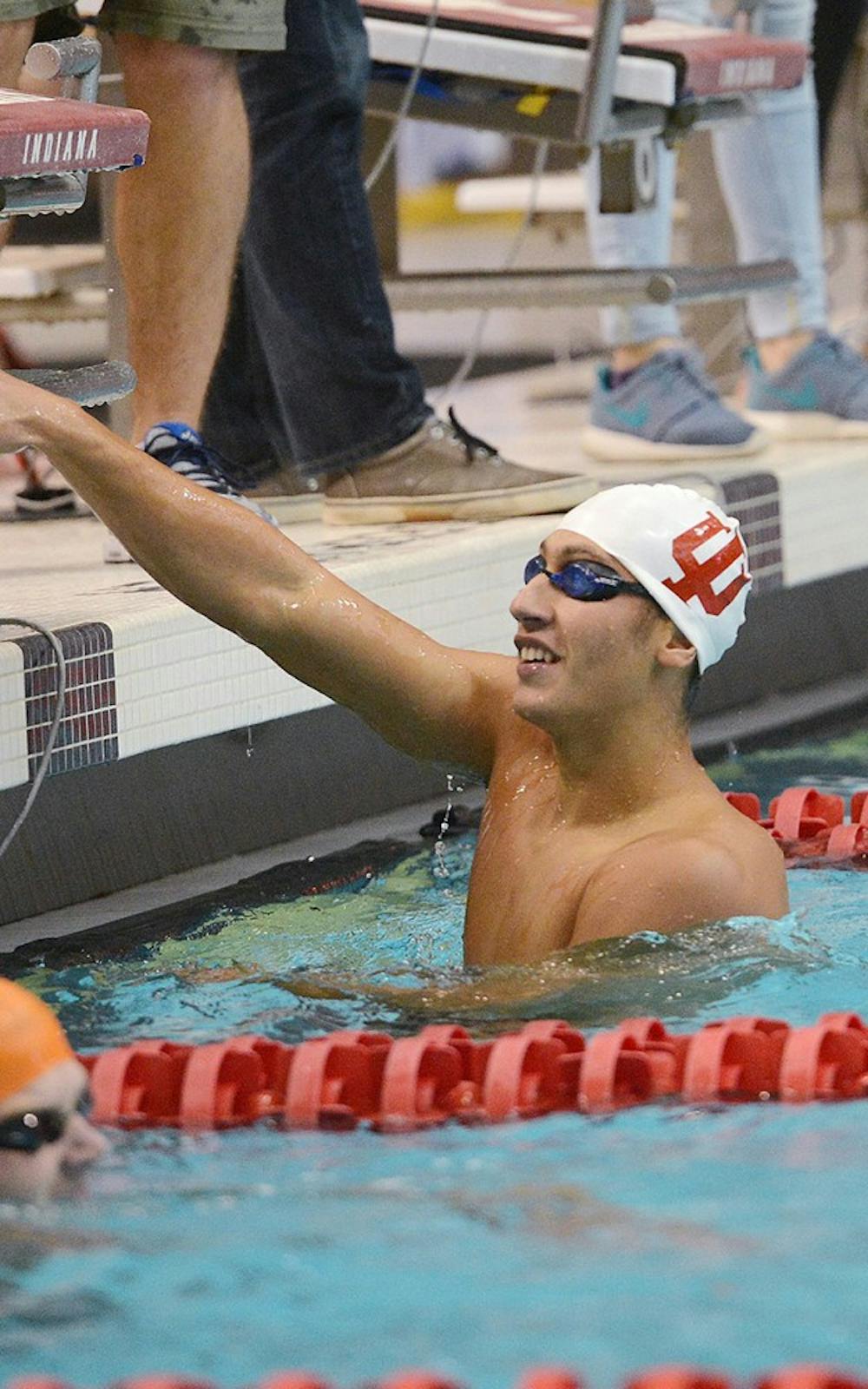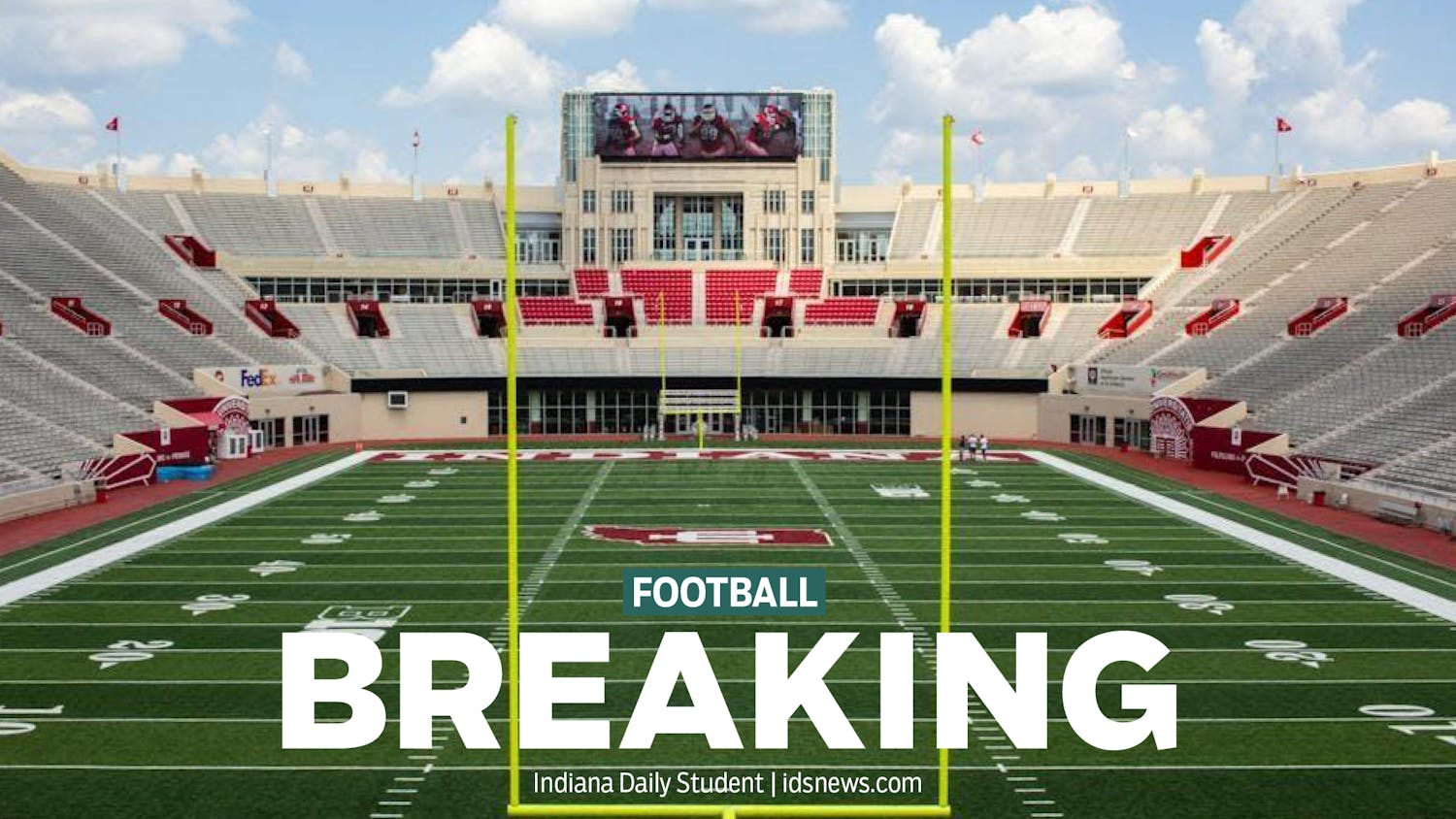When talking to people close to junior swimmer Ali Khalafalla, one word frequently arises — proud.
“My wife and I still talk about the transformation of Ali from a boy to a man,” former Fork Union Military Academy Swimming Coach Chris Van Slooten said. “I don’t know how he feels about us, but he’s like our Egyptian son, and I’ll always be there for him, hands down, whenever he needs anything.”
For Khalafalla, becoming an All-American and Olympic swimmer has been anything but simple. Born to a middle-class family in Cairo, Khalafalla grew up in a building with 15 other families in addition to his own. As a child, Khalafalla went to great lengths to get to swim practices and would commute anywhere from one to four hours to get to the pool.
Khalafalla said he first gained his love of sports from his father, Ahmed, whose dream as a youngster was to be a professional soccer player.
“He kind of wanted me to do what he couldn’t do,” Khalafalla said of his father. “It was more like he just wanted me to do what he couldn’t do so he can feel proud that he didn’t miss something.”
Growing up in Egypt was not easy for Khalafalla. As a 14-year-old, Khalafalla and his family were in Cairo when the Egyptian Revolution of 2011 occurred. Khalafalla recalls watching the protesters calling for an end to then-President Hosni Mubarak’s reign in Tahrir Square on television with his family.
“I was very impressed,” Khalafalla said. “It was like, ‘These are the people that are going to shape our future.’ I was very proud of that moment.”
As the city and country grew increasingly dangerous for the Khalafalla, he was in the midst of determining his academic future. He would attend either an American school in Cairo or Fork Union Military Academy in Fork Union, Virginia. The American school didn’t quite meet Khalafalla’s desires, however, and his true wish was to come to the United States.
Once he received his acceptance it was full speed ahead to Fork Union. However, upon arriving in the U.S. for the first time, the Egyptian and Muslim teenager faced a difficult adjustment at the Baptist military academy in central Virginia.
“I didn’t know what to expect,” Khalafalla said. “I arrived really late at night, and my English was not good at all, so whenever anyone would talk, I would feel like I was getting offended. I didn’t know if they were joking or if they were being serious. I had no idea what to expect.”
Khalafalla quickly found himself under the watchful eye of Cindi McIlnay, the director of International Admissions for Fork Union. McIlnay went through the interview process with Khalafalla as he applied for admission to the school and said Khalafalla was quickly popular among students despite his quiet demeanor.
“Ali was very shy coming in to Fork Union but extremely driven and focused and goal-driven,” McIlnay said. “He was popular in a way that he was very friendly and just a great friend. Ali was just someone you looked up to — someone that we all looked up to. Not just international kids, but everybody looked up to him because he was so determined.”
By the time Khalafalla reached swim season he was somewhat settled, but the rigor of academics and military commitments exhausted the teenager. He was so tired that he couldn’t even get out of bed for morning swim practices.
“He’d just say ‘Coach, I’m setting alarms, I just can’t get up, and you know I had to make a choice at that point,” Van Slooten said. “Do I just leave him and make him fit into my mold or realize that this kid is in adolescence and he just needs some time to sleep and that’s what his body demands? So I decided to let him have his swim time and sleep.”
Van Slooten and Khalafalla worked out an agreement that allowed Khalafalla some extra sleep time while still ensuring enough time to practice in the pool. Van Slooten said Khalafalla was always respectful of their agreement and always made it to morning practice when asked.
A new challenge arose for Khalafalla during the summer of his junior year when a medical condition caused him to lose 40 percent of his hearing. The condition also affected his sister Alia.
“I had some hearing problems, and I would just say ‘Yeah’ to whatever anyone was saying so I don’t embarrass myself because my English was also not very good, but I mean all the resources that I needed I found there,” Khalafalla said. “They helped a lot with my English and after I got my hearing better with my hearing aids I was able to communicate better.”
Eventually, Khalafalla’s hearing aids and improving English helped his life settle down. Finally he could focus on swimming.
In three years at Fork Union Khalafalla set two state records, including breaking his own state record in the 50-yard freestyle four times. He helped Fork Union win consecutive team state championships, was a three-year honor roll honoree and a member of the National Honor Society, but there was one moment that defined Khalafalla more than any other in his time at Fork Union for Van Slooten.
“He wanted to be team captain his senior year, and he came in and talked to me said ‘I think Spencer would be better because he’s much more vocal than I am. I’ll lead by example, he’ll lead by his voice and I think that would make a good fit for our team,’” Van Slooten said.
It was the fall of his junior year when Khalafalla began to decide his swimming future. That’s when IU Coach Ray Looze first took notice.
“At the time he came on his visit he was very much a project,” Looze said. “So that was in the fall, and we weren’t able to offer him a scholarship because he wasn’t fast enough, but he came in a military uniform. That is a first. I have never seen that.”
Eventually Khalafalla was able to drop his times enough to earn a scholarship from Looze and his staff. He committed to IU in March of his senior year.
When Khalafalla arrived in Bloomington in the fall of 2014 another transition awaited him, but this time he was ready.
“I think it made it a lot easier just because I learned a lot during high school, but also it made the recruiting process easier because if I was in Egypt, I was leaving directly from Egypt coming to college,” Khalafalla said. “I don’t think I would’ve been able to transition better.”
The young Egyptian mostly used his first year to acclimate himself, but he also found some success. He helped set school records in the 200-yard freestyle relay and 400-yard freestyle relay, but it was in his sophomore season that he truly broke out.
In his second year with the Hoosiers Khalafalla earned four All-America honors at the 2016 NCAA Championships, was a first-team All-Big Ten honoree, and set the school record in the 50-yard freestyle. In March Khalfalla made his way down to Orlando, Florida, to compete in the Orlando Pro Swim Series event in an attempt to earn a spot on the Egyptian Olympic team for the 2016 Rio Olympics.
Khalfalla entered the final round of the 50-meter freestyle in fourth place with a time of 22.75. To qualify for the Olympic team Khalafalla needed a 22.27 in the final round.
“Once I touched the wall and looked at the time I was in awe,” Khalafalla said. “My mouth was open. I was just in awe. I didn’t know what to do, and I kept doing that. I got out of the water, all the way around the pool. You know, I didn’t believe it.”
Khalfalla had touched the wall in 22.25, an IU school record and just .02 seconds fast enough to qualify. The project with a hearing problem was going to the Olympics.
“I took my phone, and I Facetimed my family,” Khalafalla said. “They were watching from Egypt. I think it was more like 2 or 3 a.m., and they were watching, and I was like ‘OK, well, now you just have to buy your tickets.’ It was a really good experience.”
Khalafalla finished 23rd in the 50-meter freestyle, but for Van Slooten the highlight of the Olympics for his “Egyptian son” was during the opening ceremony. Khalafalla told Van Slooten and his family, who were in the U.S., that he would wave to them when he made it on television during the ceremonies.
“This was before the whole opening ceremony. You don’t know what’s going to happen, and then when he waved, you know I’m listening to my kids over the phone,” Van Slooten said. “My kids are saying ‘He waved to us. Ali waved to us.’ You know it was just so cool for my kids and great sense of pride.”
Now back at IU for his junior season, Khalafalla has helped IU to a 10-0 record and a No. 4 national ranking. He said he is not yet satisfied with his swim career and hopes to make the Olympics again in 2020.
“I just definitely want to keep doing what I love doing,” Khalafalla said. “I can’t imagine myself just living without swimming.”






